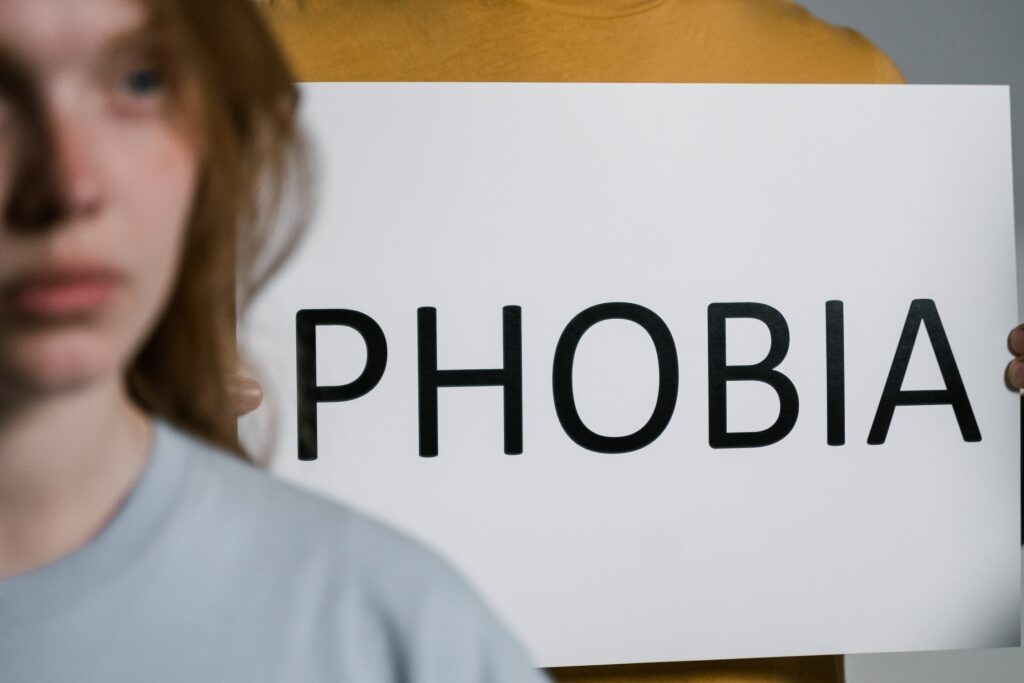Passion, excitement, longing, and fear. These are all emotions that we grapple with from time to time. The important thing is How to overcome fear?
Fear, for example, is usually a healthy response to a dangerous situation. It is our instinct for fear that prevents us from doing stupid things and harming ourselves. For example, our fear of getting into a car accident may make us more cautious as drivers.
However, what happens when fear runs wild? What happens when fear infects the imagination; infects the soul?
This is where things become unhealthy. If fear becomes uncontrolled and irrational, it can turn into a phobia. Psychology Today defines it this way: “A phobia is a distinct fear or anxiety about a certain object or situation, exposure to which consistently provokes fear or causes distress in the sufferer.”
In other words, anxiety and depression are symptoms that are commonly associated with fear. In a sense, they often appear as a triad of symptoms. Let’s get into the heart of why we fear and how we can overcome it.
The Unknown Myths To Overcome Fear
As human beings, we crave control over our circumstances. We want to know that we are the masters of our destiny and that nothing in the world can slow us down.
In truth, this is not the case. Uncertain events (such as the COVID-19 pandemic) and the changing behavior of loved ones and partners can throw a scanner in the works.
If this describes you, you may have what is known as a “intolerance of anxiety.” Pratt from Verywell Health wrote, “Those with a fear of the unknown may experience significant distress and anxiety surrounding that which is unknown or uncertain and may go to great lengths to seek certainty, even if it comes at a personal cost.”
Post-Traumatic Stress Disorder (PTSD)
PTSD was first reported in earnest when soldiers during the First World War would return and experience recurring, crippling nightmares. These nightmares and flashbacks make it impossible for them to live normal lives.
Sometimes, we feel fear not because of the fear of the unknown. Instead, we feel fear because something we fear terribly has happened in the past. This could be the sudden death of a loved one or a sudden change in life circumstances.
The Mayo Clinic wrote, “PTSD is a mental health condition that’s triggered by a terrifying event — either experiencing it or witnessing it.” These may be accompanied by symptoms such as depression, severe emotional distress at something that reminds you of the occasion, and withdrawing from others.
Breaking Free From Fear

Regardless of whether the fear you experience is in the past or whether it is something you are worrying about in the future, the good news is that there is help. There are plenty of therapies that help you tap into why you fear in the first place and how you can overcome it mentally and emotionally.
Remember that you are not alone. All of us, no matter how well put together we appear on the outside, sometimes suffer from fear. In fact, fear can ever serve as motivation! The Indeed Editorial Team wrote, “Fear is a powerful motivator because it makes us uncomfortable, and we want to move away from that discomfort toward our comfort zone.”
Learn to embrace your fears. Remember it is okay to feel down sometimes. However, life is too full of adventure and fun for you to stay down. Try seeing things from a more hopeful perspective and you might find yourself naturally moving on from fear!
References On How to Overcome Fear
- Psychology Today (2022). Fear.
- Pratt, E. (2022). Can you have a fear of the unknown?
- Mayo Clinic (2018). Post-traumatic stress disorder.
- GoodTherapy (2019). Overcoming fear.
Indeed Editorial Team (2021). What Is Fear Motivation? And 4 Positive Motivational Techniques To Use Instead.
Other blogs you might like to read: How Do You Prevent Yourself From Getting the Flu?, Why Is Motivation Important to Achieve Your Goals?, Why Childhood Obesity Deserves More Attention







Recent Comments